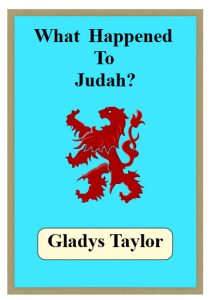WHEN ONE APPROACHES BRITISH-ISRAEL TEACHING FOR THE FIRST TIME, the question most likely to arise is, “If we are Israel, why are we so unlike the Jews?” A straightforward and brief answer to this obvious question would be, “Because most of the Jews are not really Israelites.” Such a reply would be correct but hopelessly puzzling to most people, unless followed immediately by a detailed account of the respective histories of the separate and distinct kingdoms of Israel and Judah. The identity of the Jews is bound up with the history of the tribe of Judah, which is so complex in its divisions as to demand a separate study.
The Independent Tribe
The tribe of Judah appears to have shown its independence from the time of Jacob onward. Among the patriarch’s sons, Judah seems to have been leader. The older sons had been dismissed from the birthright responsibility because of weaknesses that disqualified them: Reuben was morally unstable; Simeon and Levi had shown cruel traits of character. Judah, who was evidently of attractive appearance, assumed the position of leadership. He acted as spokesman for the sons of Jacob and he seems to have held the “sceptre”, or rod of office, significant of leadership.
There is good reason for believing that there was such a rod of office in the Hebrew family from the earliest times and its possession by Judah was confirmed in the divinely inspired promise given to his family by Jacob, “The sceptre shall not depart from Judah, nor a lawgiver from between his feet, until Shiloh come.” The promise is a long one and we will not deal with the many other details here, but it is evident that Judah was being singled out for rulership, though the throne was not to be seen in Israel until many generations later.
